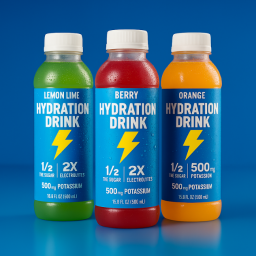
Extended Producer Responsibility (EPR) laws are transforming the landscape of packaging waste management in the United States, with Oregon, Colorado, and California leading the way. These laws transfer the responsibility of recycling and waste management from consumers and local governments to the producers of packaging materials. This article provides an in-depth overview of the EPR laws in these three states, highlighting key provisions, implementation timelines, and implications for producers.
Oregon’s EPR Law: Recycling Modernization Act
Enacted in 2021, Oregon’s Recycling Modernization Act represents a significant overhaul of the state’s recycling system by integrating producer responsibility into its framework. The law mandates that producers of packaging, paper products, and food serviceware take financial and managerial responsibility for the collection and recycling of their products. This initiative aims to create a more sustainable and efficient recycling system, reducing environmental impact and promoting the use of recyclable materials.
Key Provisions:
- Producer Responsibility: Producers are required to contribute to the responsible management of packaging waste, supporting a more sustainable and efficient recycling system. Affected packaging materials include plastic containers, glass bottles, aluminum cans, and paper-based packaging.
- Eco-Modulation: The law introduces an eco-modulation approach, adjusting producer fees based on the environmental impact of materials. This incentivizes producers to design products that are easier to recycle and have a lower environmental footprint.
Implementation Timeline:
- Producer Reporting Deadline: Producers must submit data on the amount and type of covered products sold in Oregon by March 31, 2025. This reporting is facilitated through the Circular Action Alliance (CAA), the state’s designated Producer Responsibility Organization (PRO).
- Program Implementation Begins: The EPR program is set to commence on July 1, 2025, marking the start of producer fee obligations and the implementation of the modernized recycling system.
Producers that qualify as low-volume producers may opt for a simplified flat fee, while larger producers are assessed fees based on their specific reported material weights. Accurate reporting is crucial, as final fee rates are adjusted annually based on this data. The CAA will conduct validations to ensure accurate reporting by producers, and producers must substantiate their reported supply data to the CAA upon request.
Colorado’s EPR Law: House Bill 22-1355
Colorado’s EPR legislation, House Bill 22-1355, signed into law in 2022, aims to enhance the state’s recycling infrastructure and increase recycling rates through producer responsibility. The law requires producers of packaging materials and printed paper to join a PRO to manage recycling efforts, thereby shifting the financial and operational burden from local governments to producers.
Key Provisions:
- Producer Registration: Under Colorado’s EPR law, producers were required to register with the Circular Action Alliance (CAA)—the state’s designated PRO—by October 1, 2024. This registration ensures participation in the state’s recycling system and contribution toward its associated costs. Producers that missed the deadline are still legally obligated to register and may risk enforcement action if they remain non-compliant.
- Program Plan Submission: The CAA is responsible for submitting a draft program plan proposal to the Colorado Department of Public Health & Environment (CDPHE) by February 1, 2025. This plan outlines how the EPR program will operate, including details on collection, recycling processes, and funding mechanisms.
- Sales Prohibition for Non-Compliance: Starting July 1, 2025, producers who have not registered with the PRO will be prohibited from selling or distributing covered products in Colorado. This measure ensures that all producers are participating in the state’s recycling efforts and contributing to environmental sustainability.
- Producer Reporting Deadline: Producers must report data on covered materials sold in Colorado by July 31, 2025. This reporting is essential for tracking the effectiveness of the EPR program and for adjusting strategies as needed to meet recycling goals.
The law applies to producers that meet certain thresholds, such as generating $5.32 million or more in annual revenue or using one ton or more of packaging materials in Colorado. This ensures that the program targets significant contributors to packaging waste while exempting smaller businesses that may not have the resources to comply.
California’s EPR Law: Senate Bill 54
California’s Senate Bill 54, also known as the Plastic Pollution Prevention and Packaging Producer Responsibility Act, was enacted in 2022 to address the state’s growing plastic pollution crisis. This comprehensive legislation aims to reduce plastic pollution and promote recycling through producer responsibility, setting ambitious targets for recycling and waste reduction.
Key Provisions:
- PRO Formation: Producers of covered packaging materials were required to form and join a Producer Responsibility Organization (PRO) by January 1, 2024 under California’s EPR law. The Circular Action Alliance (CAA) was officially designated as the PRO for California, and producers that have not yet registered are expected to do so immediately to remain in compliance with state regulations.
- Producer Reporting Deadline: Producers are required to report data on covered materials sold in California by August 31, 2025. This data collection is vital for assessing the state’s progress toward its recycling and waste reduction goals.
- Recycling Targets: The law sets ambitious recycling targets, requiring that 30% of plastics and other single-use packaging be recycled by January 1, 2028, increasing to 40% by 2030, and reaching 65% by 2032. These targets are designed to significantly reduce plastic waste and encourage the development of sustainable packaging solutions.
- Compostability and Recyclability Requirements: By January 1, 2032, all single-use packaging must be recyclable or compostable, and there must be a 25% reduction in single-use plastics. This provision aims to drastically reduce the volume of non-recyclable and non-compostable materials entering landfills and the environment. These requirements will push producers toward more sustainable packaging design and material innovation. Businesses that continue to rely on difficult-to-recycle plastics or multi-layer packaging will face increased compliance costs and limited market access within the state.
In addition to the recycling targets, California’s law includes:
- Eco-modulated producer fees, where companies pay more if their packaging materials are less recyclable or more environmentally harmful.
- Recycling infrastructure investments, requiring producers to fund improvements in California’s recycling system.
- Public education campaigns to increase awareness around recyclable and compostable materials.
These multifaceted requirements make California’s law one of the most comprehensive EPR frameworks in the United States. It emphasizes environmental justice, requiring producers to address how their packaging choices affect frontline communities burdened by pollution and landfill proximity.
Implications for Producers
EPR laws across these three states signal a new regulatory reality for any business producing, selling, or distributing packaged goods. For producers, this means moving beyond basic packaging decisions to consider:
- Material selection: Choosing packaging that aligns with recyclability and compostability guidelines.
- Lifecycle cost analysis: Factoring in the full environmental and financial costs of packaging choices.
- Compliance reporting: Implementing systems to track and report data accurately to designated PROs.
- Legal exposure: Understanding the enforcement mechanisms of each law, including product bans and financial penalties.
Each state’s law varies in scope, definitions, timelines, and covered materials—making compliance especially challenging for companies operating in multiple states. What qualifies as “recyclable” in Oregon may not meet California’s more stringent definitions by 2032. For this reason, producers are strongly advised to consult legal counsel experienced in packaging regulations and environmental law.
At Juris Law Group, P.C. we help businesses build regulatory strategies that not only meet state requirements but also future-proof product development for evolving national and international standards. Whether you’re a food startup trying to enter the California market or an established CPG brand navigating multistate compliance, we can guide you through the complexities of EPR law.
Question & Answer: What Businesses Should Know About EPR Laws
Question 1: What is Extended Producer Responsibility (EPR), and why does it matter?
Answer 1:
Extended Producer Responsibility (EPR) is a policy approach that makes producers responsible—financially and operationally—for the collection, recycling, and disposal of packaging materials they place into the market. The goal is to reduce waste, increase recycling rates, and shift the environmental and financial burden from local governments to the manufacturers who generate packaging waste. For companies selling products in Oregon, Colorado, or California, EPR laws represent a significant shift in how packaging compliance is managed and enforced.
Question 2: Who qualifies as a “producer” under these laws?
Answer 2:
A “producer” typically includes the brand owner, manufacturer, importer, or distributor of covered packaging, paper, and plastic products. Each state law defines the term slightly differently, but in general, if you place a product into the market—particularly if your brand appears on the packaging—you are likely considered a producer and must comply with reporting, registration, and payment obligations. Businesses unsure of their status should consult an attorney for food and beverage compliance or a packaging EPR lawyer to assess their role under the law.
Question 3: What types of products are covered by EPR regulations?
Answer 3:
The laws in Oregon, Colorado, and California primarily apply to single-use packaging, printed paper, and certain food serviceware. This includes plastic wrappers, cardboard boxes, cartons, bags, bottles, and food containers. Notably, California’s law also covers multi-material packaging and requires producers to ensure all materials are either recyclable or compostable by 2032. Companies selling consumer packaged goods (CPG) must closely review the scope of materials they use to determine compliance requirements.
Question 4: What are the penalties for non-compliance with EPR laws?
Answer 4:
Failure to comply with EPR laws can lead to significant legal and commercial consequences, including:
- Prohibition from selling or distributing products in the state (as of 2025 for Oregon and Colorado)
- Civil penalties and fines for unregistered producers
- Enforcement actions by state regulatory agencies
- Brand damage and consumer backlash due to environmental non-compliance
Businesses are strongly encouraged to register with a designated Producer Responsibility Organization (PRO), meet reporting deadlines, and implement a compliance plan. Engaging a CPG-focused regulatory law firm can help prevent costly missteps.
Question 5: Are these EPR laws likely to expand to other states?
Answer 5:
Yes. EPR laws are gaining traction nationwide, with several states—including Washington, New York, and Minnesota—actively considering similar legislation. The momentum is driven by both environmental concerns and the financial burden on municipalities for recycling programs. Federal-level discussions have also begun, which may result in national EPR standards. For producers operating across multiple states, this patchwork of laws makes national compliance strategies and legal counsel essential.
Final Thoughts: EPR Laws Signal a New Era for Sustainable Packaging
The adoption of EPR legislation in Oregon, Colorado, and California marks a pivotal shift in how packaging waste is regulated and who is held accountable. No longer can producers assume that recycling is someone else’s problem. These laws are forcing manufacturers and brands to reevaluate the materials they use, how they label and track products, and how they interact with state environmental agencies.
For brands in the food, beverage, and consumer packaged goods industries, compliance is not optional—it’s operational. Those who invest now in cleaner packaging design, streamlined reporting systems, and legal compliance strategies will be better positioned to thrive in a more environmentally conscious marketplace.
At Juris Law Group, P.C. we offer legal and regulatory counsel for businesses navigating the new requirements of EPR laws, sustainability initiatives, and packaging regulations. Whether you’re a startup food brand or a multi-state distributor, our team can help you stay ahead of the curve with proactive, reliable legal strategies tailored to the evolving regulatory landscape.
Need help with EPR compliance in California, Colorado, or Oregon?
Reach out to us today to speak with a trusted packaging and sustainability compliance attorney for the food and beverage sector.







